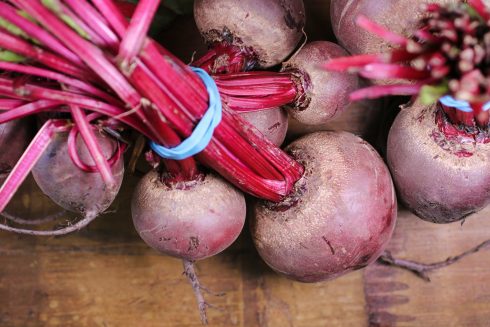EATING beetroot can have many benefits including better sports performance and blood pressure control but did you know it can also be harmful if eaten too much.
The root vegetable has been eaten since prehistoric times and since then, it has undergone many changes to become the sweet, purple variety we know today.
It is produced mostly in Italy, France and Spain, where it is grown throughout the country dependent on the time of year.
Eating beetroot can have many health benefits as it is rich in antioxidants, fibre and minerals.
Like blueberries, green tea and dark chocolate, beetroot is full of antioxidants, which help to prevent the damage of cells.

The vegetable is also a great source of fibre, which improves digestive health and can help with constipation.
They are also full of betalains, a pigment which gives them their bright red colour and helps to detoxify the liver.
Not only this, they contain nitrates which dilate blood vessels and reduce blood pressure. Nitrates also improve sports performance, due to improved blood circulation and reduced consumption of oxygen during exercise.
Beetroot also contains a lot of magnesium, which is beneficial for bone health.
However, consuming beetroot everyday could have unexpected negative side effects, such as urine and stool becoming a pink-red colour.
More serious side effects include digestive problems as, if you consume too much fibre, you may experience flatulence, tummy aches and diarrhoea.
The vegetable also contains oxalates, which can lead to the production of kidney stones in people predisposed to the condition.
Be careful of eating too much beetroot if you are taking medication, as it is known to interfere with treatment for erectile dysfunction and some cardiac issues.
Finally, beetroot can lead to a low level of calcium in the blood, so if you’re eating it regularly perhaps consider increasing your calcium intake.
For most people, eating beetroot regularly should not pose any problems. Popular ways of eating the vegetable include roasting it for salads and roast dinners.
However, in order to preserve all of the nutrients, avoid overcooking it and instead have it raw in juice or lightly steam it for use in soup, hummus or a refreshing gazpacho.
READ MORE:
- Is lemon water good for you? How one of Spain’s most popular drinks could benefit your kidneys
- Meet the Scottish Andaluz who is introducing a new and sustainable way of catching Cadiz’s famous tuna
- EXCLUSIVE: Why are breast cancer rates soaring in Spain? Worrying stats show one in 10 new cases are among under 40s








